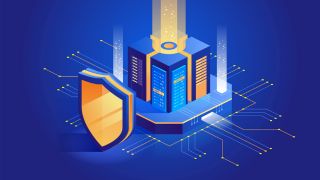Cyberattacks pose one of the most significant threats in the modern age, especially as technology becomes deeply woven into our daily lives. While the impact and sophistication of these attacks vary, ransomware stands out as the most menacing among them. To execute these attacks, cybercriminals maliciously encrypt their victims’ data and demand a ransom payment to unencrypt it. Anyone can be a target, from the average internet user to a large tech company to even the critical infrastructure of a nation-state. Cybercriminals have realized the potential of these attacks and work tirelessly to increase their sophistication and resistance to traditional security controls. Given the threat these attacks pose, implementing a detailed mitigation plan to protect against them is no longer an option but an absolute necessity. This article will explain ransomware attacks and the many actionable steps you can take to protect your business against them.
The rise of remote working in recent times has been both a productivity boost and a cause of concern for modern organizations. While remote working provides numerous benefits, it also provides a new pathway for cybercriminals to break into your environment. Virtual Private Networks (VPNs) have been the traditionally secure way of remotely accessing corporate environments, but a new concept referred to as Zero Trust has been gaining popularity these last few years. In fact, Gartner has predicted that 70% of new companies will transition away from VPNs to Zero Trust based networks by 2025. This article examines these two models, their strengths and weaknesses, and why companies have embraced the Zero Trust Model over VPNs.
Firewalls have been a staple of cybersecurity for the last couple of decades, serving as network guardians that analyze traffic to ensure it is not malicious. They are an essential part of any cybersecurity framework, and they come in many forms, ranging from massive hardware appliances to small agents running on laptops or smartphones. However, the variety of firewalls can become overwhelming when trying to choose the best one for your organization. What type of firewall does what? What role are they suited for? How to choose a firewall for a particular scenario? In this article, we demystify the types of firewalls, their roles, and what scenarios they are suited for.
Cybersecurity has evolved by leaps and bounds these last few decades, with cutting-edge technologies like AI and machine learning powering next-generation security solutions. Traditional security controls like antivirus have been superseded by intelligent anti-malware controls that can analyze the behavior of files for malicious activity. However, one control has remained a permanent fixture within companies: the firewall. While newer and more advanced functionalities have been added to firewalls, their primary role as the barrier that allows or disallows traffic into a network has remained constant.
We live in a digitally connected world with sophisticated cyber threats emerging daily. In this era of advanced cyberattacks, having a formalized cybersecurity strategy is no longer a luxury but an absolute necessity. CISOs and Cybersecurity Leaders need to create and refine roadmaps for the future that focus their security efforts and justify spending.
Active Directory (AD) Technology is a standard part of most IT infrastructures in today’s world. The directory service designed by Microsoft forms a ubiquitous part of today’s networks, both on-prem and in the cloud. It has stood the test of time by providing a practical foundation for user management and provisioning in modern environments. AD provides a centralized directory where users, groups, and their permissions can be managed, giving administrators an easy way to control who can do what in an environment. At the same time, Active Directory is not secure out of the box; it must be appropriately configured to provide a proper security posture.






